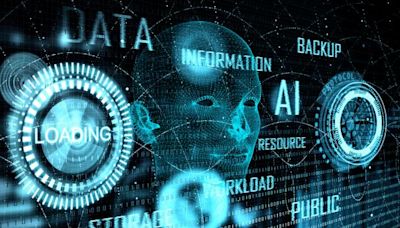Search results
- Dictionaryartificial intelligence/ˌɑːtɪfɪʃl ɪnˈtɛlɪdʒ(ə)ns/
noun
- 1. the theory and development of computer systems able to perform tasks normally requiring human intelligence, such as visual perception, speech recognition, decision-making, and translation between languages.
Powered by Oxford Dictionaries
Nov 11, 2024 · Artificial intelligence (AI) is the ability of a computer or robot to perform tasks commonly associated with intelligent beings. Learn about the history, components, applications, and challenges of AI from Britannica.
Apr 3, 2024 · Learn what artificial intelligence (AI) is, how it’s used today, and what it may do in the future. Explore the differences between AI, machine learning, deep learning, and artificial general intelligence, and the benefits and dangers of AI.
Learn about the definition, history, goals, techniques, applications, and ethics of artificial intelligence (AI), the field of computer science that develops and studies methods and software that enable machines to perceive and act in their environment.
Artificial intelligence (AI) is technology that enables computers and machines to simulate human learning, comprehension, problem solving, decision-making, creativity and autonomy.
May 13, 2024 · What is AI and how does it work? AI allows computers to learn and solve problems almost like a person. AI systems are trained on huge amounts of information and learn to identify the patterns in...
The meaning of ARTIFICIAL INTELLIGENCE is the capability of computer systems or algorithms to imitate intelligent human behavior; also, pluralartificial intelligences : a computer, computer system, or set of algorithms having this capability. How to use artificial intelligence in a sentence.
Learn the meaning of artificial intelligence (AI) as the use or study of computer systems or machines that have some of the qualities of the human mind. See how AI can interpret language, recognize images, solve problems, and learn from data.
AI is a set of technologies that enable computers to perform advanced functions, such as natural language processing, data analytics, and more. Learn about the different types of AI, how they work,...
Artificial intelligence is transforming scientific research as well as everyday life, from communications to transportation to health care and more. Explore what defines artificial intelligence, how it has evolved, and what we might expect from it in the future.
Nov 27, 2023 · Artificial intelligence, often called AI, refers to developing computer systems that can perform tasks that usually require human intelligence. It’s like allowing machines to think, learn, and make decisions independently.





